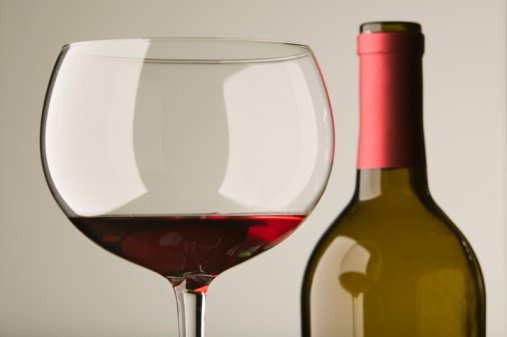Which Presidential Candidate Is Better for Wine?
The 2024 election season has been a rollercoaster.
One candidate got shot in the ear. One party lost a candidate (and gained Kamala Harris). There have been devastating hurricanes, tumultuous debates, all kinds of weirdness and a brat summer.
Chances are, you’ve felt the need to follow the political cycle with a drink in hand. It’s okay, friend, us, too.
Drinks industry pros—especially wine folks—have certainly been feeling the pressure. Sales have been declining, in part due to changing drinking habits amongst the youth. Climate change has been wreaking havoc on vineyards via wildfires, floods and other natural disasters. And the regions that are growing grapes are, in many cases, producing too much.
While neither candidate has addressed the wine business, which pumps $276 billion annually into the U.S. economy, both have taken stances on issues that will greatly affect the industry, from tariffs to foreign investments and shifts to dietary guidelines.
“Recently, the U.S. wine industry has been stagnant due to decreased consumption and trends towards wine alternatives,” says Asher Rubinstein, a partner at Gallet Dreyer & Berkey, LLP. “So, we really have to ask whether either candidate, if elected, will do anything specifically towards the wine industry to change this trend.”
Here’s how both candidate’s platforms are expected to play out.
Donald Trump
Sure, Donald J. Trump does have a winery named after him—his eponymous Trump Winery in Virginia is owned and operated by his son, Eric—but the former president is a notable teetotaler, which doesn’t exactly put him in a prime position to support the wine industry.
“We can expect that Trump, who does not drink, would probably have less natural affinity for the wine industry than Harris,” says Rubinstein.
That said, Rubinstein points out that Trump is protective over U.S. industries, which could impact the current trend of foreign buyers snapping up U.S. wineries.
“In recent years, we’ve seen Joseph Phelps bought by LVMH, Shafer purchased by a South Korean group, the $1-billion purchase of DAOU by Australian-owned Treasury Wine Estate and Chateau Montrose bought a winery in Virginia,” continues Rubinstein. “We can expect a Trump administration to possibly increase oversight and scrutiny over such acquisitions by foreign parties, which could slow down the pace of foreign acquisitions.”
The Return of Tariffs on Imports?
One of the biggest concerns of a possible Trump administration: tariffs. Trump is into them. During his previous administration, a 25% retaliatory tariff on still wines imported from France, Germany, England and Spain was imposed.
While those tariffs did help promote domestic wines, the effects still hit home. Backlogs of activity had imported wines waiting up to three months to arrive in the United States. Small importers across the country were forced to handle skyrocketing prices, and the impact trickled down to restaurants, retailers and customers.
“It’s not even like kicking someone when they’re down,” Erik Segelbaum, founder of Somlyay, a Washington, D.C.-based wine service and hospitality consulting company, said when the tariffs were levied. “It’s like cutting off their limbs and then saying ‘If you want to survive, you can walk out of here.’”
The tariffs were eventually suspended.
If Trump is re-elected in November, he’s pledging to impose 10% to 20% levies on all products imported into the United States.
“If Donald Trump wins, there is a good chance tariffs on imported wine could be put in place,” says Dave Parker, CEO and owner of Benchmark Wine Group in Napa Valley. “It will increase costs and the value of the products in the U.S.”
The National Association of Wine Retailers says that if 25% tariffs stayed in place or were reinstated, there could be 78,000 job losses in the United States, 200,000 importer/distributor employees impacted and a $10 billion cost to the country.
“Importers of European wines will only feel pain—no gain—if tariffs come back,” says Charles Lazzara, the CEO and founder of Volio Imports.
The effects would be widely felt with little benefit, says Ben Aneff, president of U.S. Wine Trade Alliance. “Wineries grow through strong distributors and new foreign markets. Restaurants depend on affordable imported wine. Because of the three-tier system, wine tariffs hurt American businesses more than businesses in the countries the tariffs target and they are a very poor lever to influence policy abroad.”
Lower Taxes for Small and Large Producers
Trump was in office when the alcohol industry scored a huge win in 2017 and 2019 with the passing of the Craft Beverage Modernization and Tax Reform Act (CBMTRA), which rejiggered regulations and lowered excise tax rates for domestic winemakers, brewers and distillers. Other permanent benefits include extending tax breaks to medium and large products of wine (prior rules only allowed for small producers to benefit) and offering tax credits to wineries regardless of production size, allowing them to redirect those funds into their own business.
But Trump can’t take all the credit. The act was passed thanks to the lobbying efforts of beverage alcohol trade groups, including the Brewers Association (BA), Beer Institute (BI), Distilled Spirits Council of the United States (DISCUS), American Craft Spirits Association (ACSA), Wine America, the Wine Institute and the U.S. Association of Cider Makers.
The Controversial Dietary Guideline Update
In 2020, a panel of scientists recommended that the Trump Administration reduce the U.S. Dietary Guideline for Americans’ alcohol intake for men from two glasses to one. Trump shot down the idea. As the wine industry reckons with the dimming of alcohol’s health halo, Trump’s stance on consumption could give the industry a stronger footing.
Kamala Harris
Kamala Harris, on the other hand, is a wine drinker. She’s been seen sipping wine at Cork Wine Bar in Washington, D.C. Co-owner Khalid Pitts told the Washingtonian that the Vice President can wax poetic about the differences between California and French oak. Harris has been a member of the Congressional Wine Caucus, a bipartisan group that advocates for the interests of the wine industry, and a wine club member of the now-shuttered Rock Wall in Alameda, California. (She’s also been known to drop ice cubes in her white wine—a divisive move).
But since she hasn’t held the role before, it’s difficult to unpack what her election would mean to the wine industry.
Anti “Tequila Tax” Tariffs
Harris has launched a rebuttal to Trump’s looming levies. The “Trump’s Tequila Tax” is a social media campaign highlighting what Trump’s proposed tariff plan will mean for drinkers. In short: a pricier bar tab.
“He wants to tax your tequila, your Modelos, your Hennessy—all of it,” says a TikTok on KamalaHQ. “Kamala Harris wants to support small businesses, like mom-and-pop owned liquor stores and locally-owned bars.” It also highlight’s Harris’s proposed tax deduction for small business startups.
“If Kamala Harris wins, we don’t expect tariffs,” says Parker. “But we might expect to see continued high energy costs, inflation and interest rates, higher taxation and more employment regulation, which would ultimately increase the cost of doing business.”
Ingredient Labeling Initiatives
Harris has also been rallying behind stricter product labeling, which may be important if the movement extends to alcohol packaging. Some U.S. regulators are pulling inspiration from Ireland and are considering health and cancer warning labels on alcoholic products.
The Alcohol Tobacco and Trade Bureau (TTB) has been in talks around calorie and ingredient labels on alcoholic beverages. Some Oregon wineries—including Troon Vineyard and Sokol Blosser Winery—have already added ingredient information to their labels.
“I don’t see any negative impact to ingredient labeling, should that come into play like it is in Europe,” says Lazzara of Volio Imports. “QR codes are extremely useful for consumers and I’m all for anything that compares wine with food.”
Legal Weed?
Another big talking point for Harris’s campaign? Federal legalization or decriminalization of marijuana.
“Many people expected it with the Biden administration,” says Rubinstien. “Perhaps this will happen during the Kamala Harris administration.”
Alcohol industry members worry that legal cannabis could woo drinkers away from wine.
“[Federal legalization] could put continuing pressure on the wine industry, as people might gravitate away from wine toward cannabis,” Rubinstein adds. “Trump is not a fan of marijuana legalization, so perhaps a Trump administration would not nurture the competitive cannabis industry.”
So, what’s in store? It’s hard to say other than it’s going to be a bumpy few months. You might as well pour yourself a glass of something nice and just hope for the best.
More Wine and Politics Coverage
In the Shop
Flex Your Collection
Transform your home into a wine lover’s paradise with a custom wine cellar. From design to functionality, Wine Enthusiast can create the perfect storage solution.
Published: October 15, 2024

